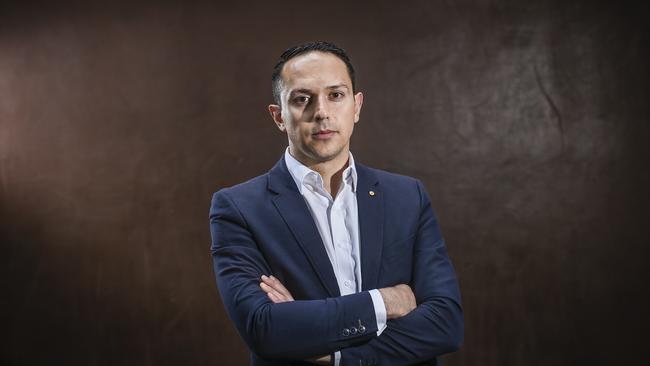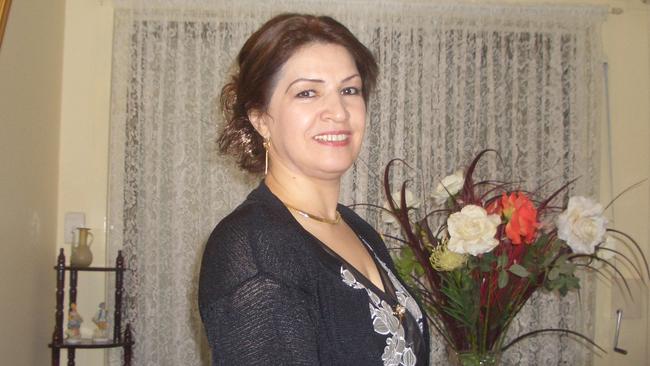From enduring grief, a legacy of help against abuse
Zahra Abrahimzadeh’s murder was the culmination of two decades of escalating familial violence; her legacy is a foundation that raises funds to help abused women.

Ten years ago, Adelaide mother of three Zahra Abrahimzadeh was looking forward to celebrating the social event of the year with friends and family from South Australia’s Persian community.
The Persian New Year, known as Nowruz, falls on the March equinox, heralding the beginning of the northern hemisphere spring.
Nowruz is a celebration of life. But for Zahra Abrahimzadeh’s children it will be forever linked with death because the 2010 Persian New Year was the last night of their mother’s life.
Zahra was 44, and she didn’t die from a sudden illness or an accident. She was killed by her husband, stabbed to death in front of 300 terrified onlookers at the Adelaide Convention Centre at what was meant to be a celebration.
Her death was the culmination of two decades of escalating familial violence. She and her husband had migrated to Australia from Iran in 1997 but as her marriage became more painful and abusive, she decided to leave the family home in 2009 with the help of South Australia’s Central Domestic Violence Services. A year later, she was dead.
Her lasting legacy is her three children — daughters Atena and Anita and son Arman — as well as the foundation they have created in their mother’s name to provide greater support for women such as their mother, whose death was the subject of a damning coronal inquest that identified multiple failures by South Australia Police.
Despite being robbed of their mother and having endured physical and verbal abuse at the hands of their father, the Abrahimzadeh children have all achieved success in life. And while Arman is about as far from being a left-winger as you can get — he’s a project manager in the construction industry, a member of the Liberal Party and an Adelaide City councillor — he adds his voice to calls for Bettina Arndt to be stripped of her AM after stating that the man who murdered Hannah Clarke and their three children “might have been driven too far”.
“I try not to read all the details about these cases but with the Queensland case, it has been hard to avoid,” Mr Abrahimzadeh said.
“It reminded me of something my father said not long before he killed Mum: ‘You can all try to escape me but I will find out where you live, and one day when you least expect it, I will burn you alive.’
“You can’t excuse that kind of behaviour. I can’t think of any set of circumstances where you can explain or rationalise murdering a woman and three children.”
Mr Abrahimzadeh and his sisters are the human rejoinder to any suggestion that discussion around domestic violence is some sort of armchair debate in the culture wars. Their childhoods were marred by violence by their father, and a well-placed fear he would do what he eventually did, with police failing to act on repeated breaches of apprehended violence orders.

On the night Zahra was murdered, Atena was 23, Arman was 22 and Anita was 12.
“We didn’t just lose Mum,” Mr Abrahimzadeh said. “My older sister and I effectively became parents overnight. We had to get a court order declaring my sister and I were legal caregivers to our little sister after my father was incarcerated. Our lives were turned completely upside down.”
He and his sisters have channelled all this horror into advocacy work through the creation of the Zahra Foundation, which raises funds to help abused women achieve financial independence when they exit toxic relationships.
He has also earned a deserved reputation as a persuasive advocate for new thinking in how to combat domestic violence. He has become good friends with the state’s Police Commissioner Grant Stevens, who has taken a personal interest in Zahra’s case as an impetus for changing the way police deal with domestic violence.
“I came to know Arman through the coronial inquest and since then have been privileged to maintain a relationship with him that has extended beyond dealing with the challenges of how we combat domestic violence,” Mr Stevens told The Weekend Australian.
“It speaks volumes to his character and also that of his sisters that despite criticisms of SA Police in terms of how it handled the domestic violence situation the Abrahimzadehs found themselves in, Arman and his family maintained a positive and constructive approach in engaging with SAPOL and assisting us with our work.”
Mr Abrahimzadeh said in his family’s case, two things might have saved his mother’s life: more vigilant police work, and a recognition from his father that he was on the wrong path.
While the passage of time has helped him deal with the loss of his mother, he said he would never really recover from the grief. It’s the special milestone moments that get him, such as last December when he was married and spent much of the morning in tears wishing his mother was there.
He and his sisters have done an amazing job keeping their lives together, with no real help from immediate family — to this day, his father’s family supports the murderer, considering him wrongfully jailed.
“You can’t choose your relatives,” Mr Abrahimzadeh said.
That applies to too many Australian women and kids.



